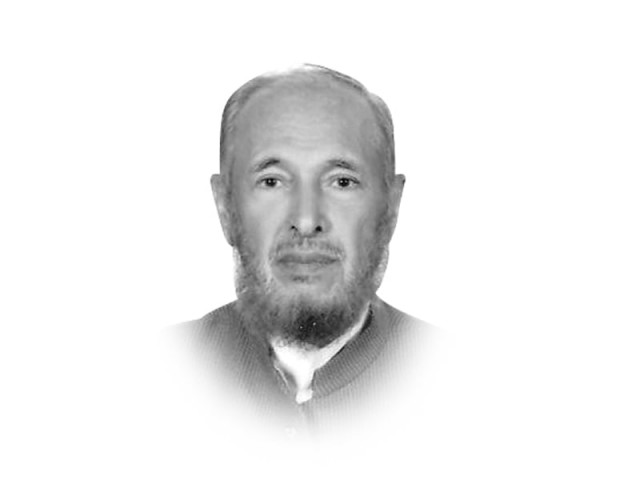What PDM breakup means for a fragile democracy
The split in the alliance will cast its deep shadows on the political landscape in the country

Expectations were not high when the opposition parties decided to create a unified bloc to confront a government they accused of having been superimposed on the country. Given the deep differences and classes of personalities, many believed the alliance would not last long enough to pose a challenge to the government of Imran Khan. Suspicions about the credentials of many components of the alliance persisted. But overwhelmed by the enormity of the challenge in the face of a government that was widely regarded to have the backing of powerful forces, they chose to collectively launch a movement for undoing the system that apparently did not reflect the aspirations of the people. In choosing to launch a movement the opposition was also spurred by the rising inflation, growing unemployment, and lack of capacity and leadership to overcome the many socio-economic hazards that rank and file Pakistanis are facing.
The nation began to look up to some positive gains that would help mitigate their unending sufferings as a result of the rulers being put in the dock for failure of policies and actions. There was a rare opportunity for confronting a government that has failed to deliver on all fronts — be it economic, development, security or foreign policy. The government, in combating the united opposition, had nothing to show beyond rhetoric and tall promises for better days to come.
The cracks did not take long to appear in the ranks of the opposition. Observers were, however, shocked to learn the opposition alliance is being dismantled on issues such as the leader of the opposition in the Senate. Firstly, is the Senate really so crucial an organ that it helps in the formulation of policies in critical areas of national importance? Has the parliament in Pakistan in the past played any decisive role in creating a vision for the country, or in formulation of policies, or in holding any government accountable? Don’t the stakeholders know who takes vital decisions in the realm of defence, internal security and foreign policy? If the answers to these questions are clear, then why make such a fuss about a position that is largely ceremonious?
Has the parliament really played any crucial role in the past, either in exercising a check on the government or in helping to create a roadmap for the government that would set conditions for more prosperity, to deal with disparities, injustices, economic sufferings of the people and improve relations with countries of the region?
The PPP was not expected to seek votes from the Balochistan Awami Party (BAP) because that group is believed to have links to powerful forces. But even if they chose to seek such support and get the ‘coveted position’ of the leader of the opposition, heavens would not fall. For such a charge to dismantle an opposition alliance would be a historic folly that would only benefit those aligned with the current dispensation. Democracy would be the net loser because an arrangement that has been created with dubious means and resources would find an ambience to consolidate itself. Is that helping in the evolution or growth of democratic norms?
The opposition movement would begin to lose its steam and gradually, its relevance. Who would benefit from the unraveling of the Pakistan Democratic Movement? All those who have been in the vanguard of ‘engineered systems of governance’. But the people of Pakistan would be the biggest losers. For them, the dawn of a genuine, unfettered democracy would remain as distant as ever.
Why couldn’t the PPP accept the reality of the so-called leader of the opposition being from another party? And why couldn’t the PML-N restrict itself with a mild grievance, rather than going for the ultimate step of sowing the seeds of the breakup of the alliance? In choosing to split the alliance both were guilty of sabotaging the cause for which they sought to build up an alliance in the first place. Both are guilty of letting the status quo continue at the expense of the people — thus helping the ruling dispensation to further consolidate itself. They have undermined the goal which they vowed to accomplish by joining hands with such hope and enthusiasm. This is bad politics. This is short-sightedness which only people lacking foresight would be expected to show.
The split in the alliance will cast its deep shadows on the political landscape in the country. People will begin to lose faith in the political class for not being truly aligned with their aspirations for a better future. Those who believe in genuine democratic governance as a means to bring about a transformation in the lives of future generations would be sorely disappointed.
There may still be time to salvage the PDM if sincere endeavours are made by those who can project into the future and realise the awful consequences of the alliance’s breakup on non-issues. But the clock is ticking. The leaders are mandated by the people to rise to the occasion, bury the past, and usher the country onto a new trajectory the purpose of which is to create an environment for true democratic governance, unburdened by the dictates of laid-down parameters.
















COMMENTS
Comments are moderated and generally will be posted if they are on-topic and not abusive.
For more information, please see our Comments FAQ